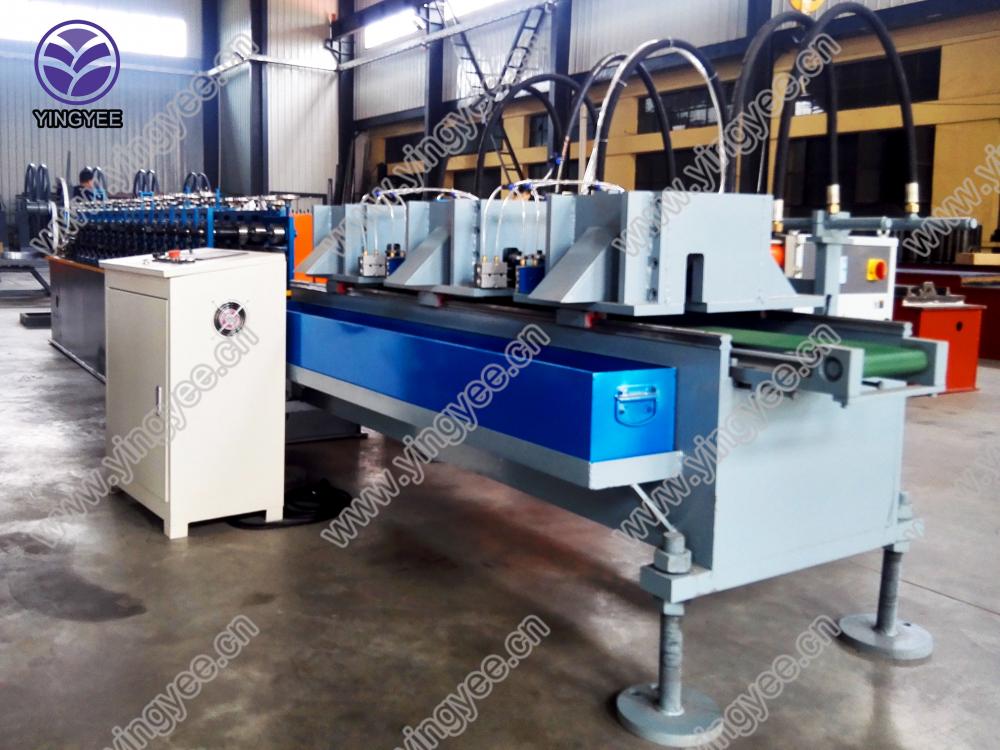
Understanding the Drywall Roll Forming Machine A Key Component in Modern Construction
In the rapidly evolving world of construction technology, efficiency and precision are paramount. One of the pivotal innovations that have transformed the manufacturing of drywall is the drywall roll forming machine. This machine automates the production of metal framing components used in drywall installations, thereby enhancing the overall quality and efficiency of construction projects.
What is a Drywall Roll Forming Machine?
A drywall roll forming machine is specialized equipment used to produce drywall metal studs, tracks, and other profiles from flat metal strips. The machine operates by taking coils of metal (typically galvanized steel) and passing them through a series of rollers. These rollers gradually shape the metal into the desired profiles used in framing walls, ceilings, and partitions. The automation of this process not only speeds up production but also ensures higher consistency and uniformity in the dimensions of the products.
The Manufacturing Process
The process begins with loading metal coils into the machine. As the metal is fed through, it undergoes a series of shaping operations performed by rollers that bend and form the metal into specific profiles. This includes critical features such as flanges and webs that are necessary for structural integrity.
Once the metal is shaped, the machine can be equipped with additional features such as cutting tools to produce specific lengths and automated systems for packaging. This means that the finished product can be immediately prepared for delivery and use on construction sites.
Advantages of Using a Drywall Roll Forming Machine
1. Efficiency One of the primary advantages is the remarkable efficiency it brings to the manufacturing process. The machine can produce large quantities of metal profiles in a fraction of the time compared to traditional methods, which require manual labor and lead to longer production cycles.

2. Cost-Effectiveness Although the initial investment in a drywall roll forming machine can be substantial, the long-term savings are significant. The reduction in labor costs and waste, along with increased production speeds, can lead to a more profitable operation.
3. Consistency and Quality With automated processes, the potential for human error is dramatically reduced. This means that each drywall component produced meets stringent quality standards, ensuring that constructions are more reliable and durable.
4. Customization Modern roll forming machines are equipped with advanced technology that allows for customization. Manufacturers can easily change specifications to produce different types and sizes of drywall profiles without significant downtime, accommodating the diverse needs of various construction projects.
5. Reduced Waste By utilizing precise cutting and shaping techniques, drywall roll forming machines minimize metal waste. This not only contributes to cost savings but also aligns with sustainable construction practices, which are increasingly important in today's environmentally conscious market.
Applications in Construction
Drywall roll forming machines play a crucial role in various applications within the construction industry. They are widely used in the construction of commercial buildings, residential houses, and renovation projects. The ability to produce lightweight yet strong frames makes them ideal for drywall installation, which is a common practice for creating interior walls and ceilings.
Moreover, as the construction industry continues to evolve towards more energy-efficient, lightweight, and sustainable building practices, the demand for advanced drywall roll forming machines is expected to grow. Manufacturers are continually innovating, integrating smart technology and automation to enhance production capabilities and meet the needs of modern construction.
Conclusion
In conclusion, the drywall roll forming machine represents a significant advancement in construction technology. By offering enhanced efficiency, reduced costs, improved quality, and customization options, these machines have become indispensable in the production of drywall components. As the construction industry progresses, the integration of advanced technologies will further solidify the importance of drywall roll forming machines, ensuring they remain at the forefront of modern building practices. The ongoing evolution in this field indicates a promising future for builders, manufacturers, and, ultimately, the occupants of the structures they create.